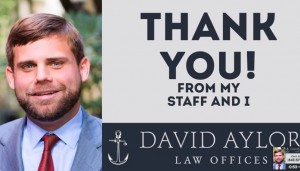 I hate to pull the stuffings out of this article from the New York Times about women lawyers trying to manage both family life and a solid law practice. It was a lovely, fluffy piece of lifestyle journalism.
I hate to pull the stuffings out of this article from the New York Times about women lawyers trying to manage both family life and a solid law practice. It was a lovely, fluffy piece of lifestyle journalism.
The women at the Geller Law Firm, it seems, have based their practice around making sure that they don’t lose sight of the other important things in their life, also known as children.
To do this, they cut back on hours, or make them really flexible, work from home or temporary offices, and focus most of the practice on non-litigation matters such as trusts and wills and small business incorporations. And “[T]he partners limit their litigation business because court appearances and filing deadlines mean less control over their schedules.”
According to the piece:
the founding credo of which is family-friendliness and whose stance on office face time is best described as “militantly against.”
You know what? If they can figure out a way to make the model work, then more power to them. If a group of people, for example, only want to work 30 hours a week, and take home less pay and have fewer clients, no problem.
So long as the clients aren’t affected.
But the article needed a little color. Someone decided it would be nice to have an actual client involved in the cuddly, little piece.
The problem with including a client, of course, is the risk that something will be said about an actual piece of litigation, so you would expect something very benign, such as “I think they are awesome and have no problem with the limited hours and they always get back to me when I call and they are awesome, and I said awesome twice because I really, really think so.” You know, like that.
But that is not what happened, so this is where the stuffings get pulled from the sweet teddy bear of a feature piece.
This part just leaped off the page at me, as confidential communications were exposed in front of the Times reporter:
By 10 a.m. on that Wednesday in March, Ms. [Maria] Simon was seated in front of a client, formerly the president of a condominium association that was now suing him. (The client gave me permission to sit in on the meeting.)
Ms. Simon began to review each count of the civil complaint against him, MacBook open and legal pad at the ready. She had a litigator’s game face that was only occasionally undone by a wry smile she couldn’t quite suppress.
“I have to ask,” Ms. Simon said at one point. “Did you ever falsely represent yourself as an attorney?” The client explained that he had once told a local agency that he was appearing before it as an attorney but that he had meant it “in the British sense,” in that he had power of attorney. “You know you’re not supposed to say that, right?” Ms. Simon deadpanned.
“Yes, lesson learned,” he said.
For the non-lawyer readers, let me explain. What lawyers and clients say between themselves is privileged. But when a third party, unrelated to the law firm, comes into the room, the privilege evaporates. Gone. Up in smoke. At a deposition opposing counsel can ask about every single thing that was said in front of this other person.
Lawyers see this potential problem with some regularity, though not with reporters as the third wheel. Often a friend will accompany the client to the office. And when that happens, it’s the job of the lawyer to exchange pleasantries with these friends and explain to them what a privilege is, and why they can’t come into the conference room, and offer them coffee and a newspaper as they sit in the waiting room.
Why the lawyers at Geller decided it would be wise to have a confidential meeting in front of a reporter is utterly beyond me. And why the lawyer would ask in front of a reporter, “Did you ever falsely represent yourself as an attorney?” is simply bizarre.
Saying that this was not a well thought out interview from the lawyer’s perspective is, I think, a significant understatement.
This is not the first time I’ve written on this subject, where it seems that the desires of the lawyer for press have superseded the best interests of the client.
We saw this just a couple weeks ago with South Carolina attorney David Aylor, who was representing police officer Michael T. Slager, who happened to fire 8 shots toward the back of Walter Scott, killing him. Aylor didn’t just jump ship after seeing the video, but worse, told the world just hours later that he was jumping ship after seeing the video. Because apparently Aylor comes first, not the client.
And we saw this a few years back with Chicago criminal defense attorney Stuart Goldberg, who interviewed with Lindsay Lohan about representing her, and then opened up to People magazine about her “fragile” state. But confidential means confidential.
What should the Geller client expect? That his admissions in front of his lawyer may now be an issue, that everything said in front of the lawyer is no longer confidential, and that the lawyer might actually now be a witness to the admissions, and be unable to handle the matter due to a conflict.
That is one hell of a mess, if you ask me. And I don’t know how anyone can say it benefits the client.
This isn’t to say that all client interactions with the press are bad. But going into them, there must be long and thoughtful discussions about exactly what is fair game to speak about, and what isn’t, and how/why it helps the client.
I reached out yesterday by email to the lawyer involved and she did not yet get back to me.
